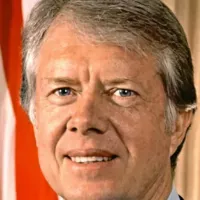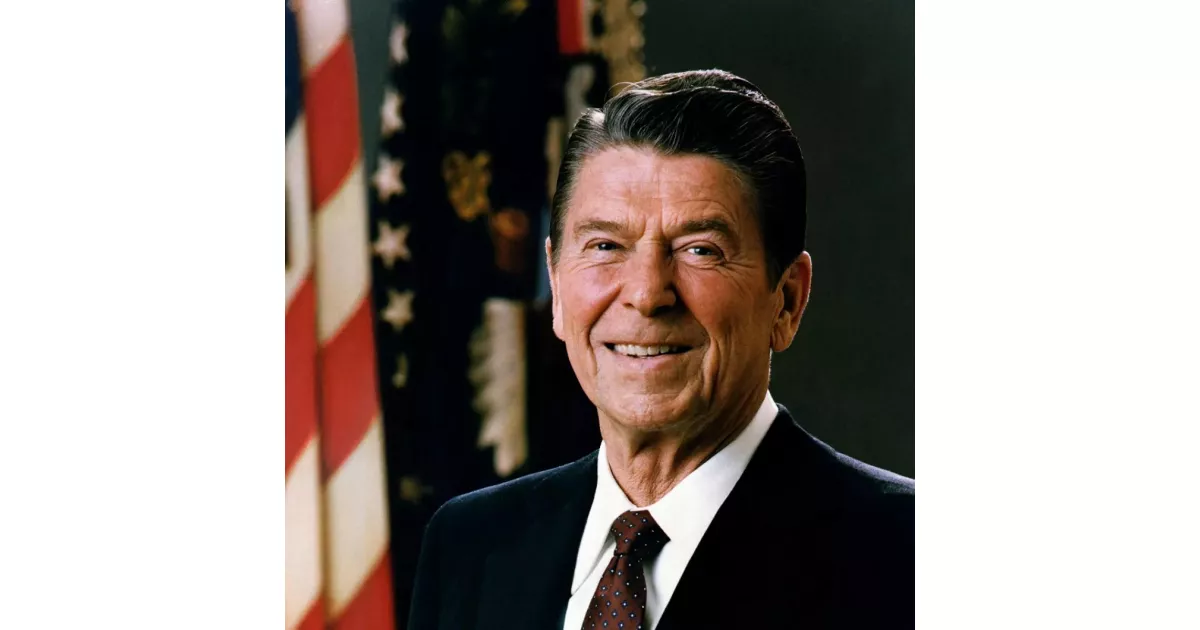An overview of the childhood and early education of Ronald Reagan, highlighting the experiences that shaped the journey.
Ronald Reagan, the 40th U.S. President (1981-1989), was a pivotal figure in the American conservative movement. A Republican, he implemented supply-side economics, dubbed "Reaganomics," which aimed to reduce government spending and taxes to stimulate economic growth. Reagan strengthened the military, challenged the Soviet Union, and is credited by some with helping to end the Cold War. Domestically, he faced challenges like the AIDS epidemic and the Iran-Contra affair. Before his presidency, he was a Hollywood actor and Governor of California.
February 6, 1911: Ronald Reagan's Birth
On February 6, 1911, Ronald Wilson Reagan was born in Tampico, Illinois. He would later become the 40th president of the United States.
1920: Family Settles in Dixon, Illinois
In 1920, the Reagan family settled in Dixon, Illinois, living near the H. C. Pitney Variety Store Building.
1928: Enrollment in Eureka College
In 1928, Ronald Reagan began attending Eureka College, affiliated with the Disciples of Christ.
1930: Playing for Eureka Red Devils
In 1930, Ronald Reagan played for the Eureka Red Devils football team.
1931: Playing for Eureka Red Devils
In 1931, Ronald Reagan played for the Eureka Red Devils football team.
1932: Graduation from Eureka College
In 1932, Ronald Reagan graduated from Eureka College.
April 1937: Enlistment in the United States Army Reserve
In April 1937, Ronald Reagan enlisted in the United States Army Reserve.
October 1941: Draft Deferment for Kings Row Filming
In October 1941, Ronald Reagan received a draft deferment to complete filming of "Kings Row".
April 1942: Beginning of Military Service
In April 1942, Ronald Reagan began his military service.
December 9, 1945: Discharge from Military Service
On December 9, 1945, Ronald Reagan was discharged from the United States Army Air Forces as a captain.
June 1948: Jane Wyman Files for Divorce
In June 1948, Jane Wyman filed for divorce from Ronald Reagan.
July 1949: Divorce Finalized
In July 1949, Ronald Reagan's divorce from Jane Wyman was finalized.
March 30, 1981: Assassination Attempt
On March 30, 1981, Reagan was shot by John Hinckley Jr. outside the Washington Hilton. He underwent surgery and recovered quickly, and the event created a bond between him and the American people.
1981: Start of AIDS Epidemic
In 1981, the AIDS epidemic began to unfold and was initially difficult to understand for physicians and the public.
October 19, 1983: Overthrow and murder of Maurice Bishop
On October 19, 1983, Maurice Bishop was overthrown and murdered by one of his colleagues, leading to increased instability in Grenada.
January 29, 1984: Reagan announces reelection campaign
On January 29, 1984, Reagan announced his reelection campaign with the slogan "America is back and standing tall".
October 1985: Death of Rock Hudson affects Reagan's view on AIDS
In October 1985, the death of President Reagan's friend Rock Hudson, due to complications from AIDS, prompted Reagan to seek more information about the disease.
January 20, 1989: Reagan Leaves Office
On January 20, 1989, Ronald Reagan left the presidency at the age of 77, making him the oldest president to leave office at the end of his tenure at the time.
February 3, 1994: Reagan's Final Public Speech
On February 3, 1994, Ronald Reagan gave his final public speech during a tribute to him in Washington, D.C.
April 27, 1994: Reagan attends Richard Nixon's funeral
On April 27, 1994, Ronald Reagan's last major public appearance was at the funeral of Richard Nixon.
August 1994: Reagan diagnosed with Alzheimer's disease
In August 1994, Ronald Reagan was diagnosed with Alzheimer's disease, which he announced in November through a handwritten letter.
1994: Diagnosis with Alzheimer's Disease
In 1994, Ronald Reagan was diagnosed with Alzheimer's disease, which impacted his post-presidency.
Mentioned in this timeline

Martin Luther King Jr was a pivotal leader in the...
California is a U S state on the Pacific Coast...

The stock market is where buyers and sellers trade stocks...
The Union of Soviet Socialist Republics USSR existed from to...

Washington D C is the capital city and federal district...

Jimmy Carter the th U S President - was a...
Trending

1 hour ago Ryan Hurst's Kratos Revealed in Prime Video's 'God of War' Series: Cast Updates

1 hour ago Cowboys to Franchise Tag George Pickens for $28 Million: A Bold Move

1 hour ago Rublev dominates Rinderknech, secures Dubai 2026 SFs spot; stats rival Djokovic, Federer.
19 hours ago Dell Projects AI Server Boom to Spur $50 Billion in Sales by 2027

2 hours ago Official Pokémon LEGO Sets Launch Worldwide on Pokémon Day 2026!

2 hours ago Scream 7 Premiere Sees Protests After Melissa Barrera's Firing; Cast Reunites.
Popular

Jesse Jackson is an American civil rights activist politician and...

Barack Obama the th U S President - was the...

Susan Rice is an American diplomat and public official prominent...

XXXTentacion born Jahseh Dwayne Ricardo Onfroy was a controversial yet...

Michael Joseph Jackson the King of Pop was a highly...

Kashyap Pramod Patel is an American lawyer who became the...
